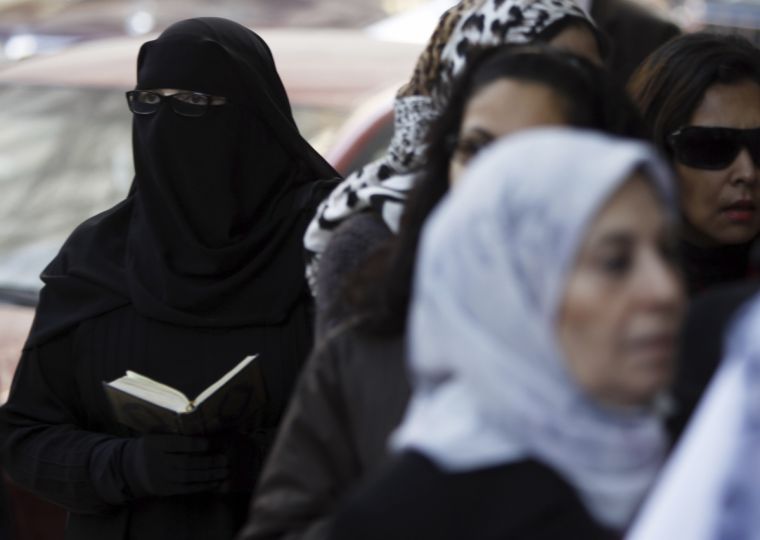Middle Eastern men think women should be submissive – but women aren't so sure

Most Middle Eastern men believe that a woman's place is in the home, according to a survey that suggests the views of men are largely at odds with those of younger Middle Eastern women.
The majority of Middle Eastern men support the idea that women should not be leaders, should not work outside the home and that men should take priority over women in education.
The findings came from a study of 10,000 people across Egypt, Lebanon, Morocco and Palestine, undertaken by the International Men And Gender Equality Survey (IMAGES), an advocacy group exploring men's attitudes to social issues, including gender, across the world.
In the survey, covering those aged 18-59, men were found to have far less progressive views on gender equality than women, particularly younger women.
In Egypt for example, more than 90 per cent of men agreed with the claim that 'a man should have the final word about decision in the home'. Fewer women (58.5 per cent) agreed with the statement.
More than half of Egyptian men surveyed said that 'there are times when a woman deserves to be beaten'; less than a third of women agreed.
Seventy-five per cent of women surveyed said that women should have the same right to work beyond the home as men, while just 31 per cent of Egyptian men agreed.
The extensive study was coordinated by UN Women alongside IMAGES and Promundo, another global gender equality group. Mohammad Naciri, regional director of Arab States UN Women said the findings 'have shown us things we already knew but for which we did not have evidence – for example, that among many of the male respondents there is a sense of superiority, a conviction that they are entitled to protect and control their female family members'.
While the research is troubling for equality advocates – affirming the presence of widespread social prejudice – Naciri said he still had great hope for progress.
He said: 'Amidst the stories of men's violence against women, we found stories of men's caregiving in the home. For every story of a man who compelled his daughter to marry against her will, there were stories of men who empowered their daughters.
'For every man who considered his job more important than his wife's or his sister's, we heard from men who viewed their wives' and their sisters' work as fully equal to theirs.'
The study noted that while across the Middle East, men tended to favour inequitable views toward women, in every region at least a quarter of men showed support for at least some aspects of female empowerment.
'There is a long way to go for men to fully accept and support equality for women in the Arab region, as in many parts of the world,' Gary Barker, president of Promundo told The Guardian.
'Across all four countries, we see that one of the biggest disrupters of gender inequality is when men take on more of the activities in the home typically defined as women's roles.'
The study said that for progress to be made, those with more progressive views need to translate their ideals into practice: 'When positive, equitable attitudes and behaviours are practised within the household, change can become a reality.'
The study, 'Understanding Masculinity: Results from the IMAGES – Middle East and North Africa' is available to read here.











